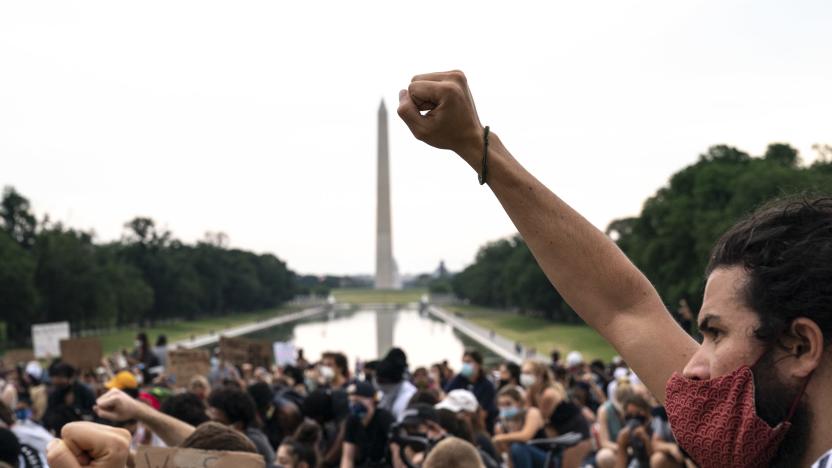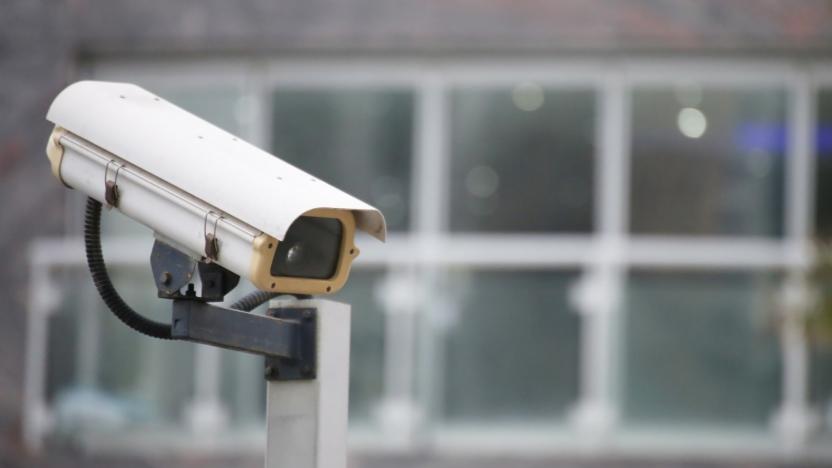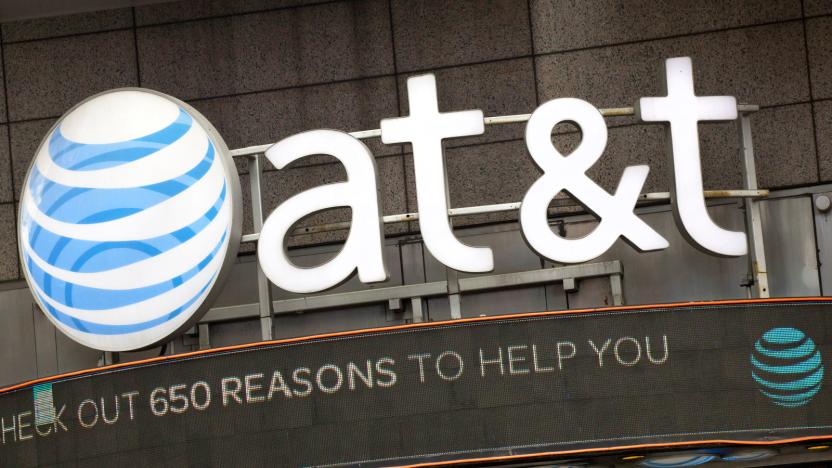DEA
Latest

Microsoft reportedly tried to sell facial recognition tech to the DEA
Microsoft pitched its facial recognition technology to the DEA despite its concerns about selling to local police.

How to protect your identity while protesting police brutality
As protests around the country against police brutality continue to expand, law enforcement's reaction grows ever more heavy-handed. Here are some ways to protect yourself and your identity.

ACLU sues to reveal the FBI's uses of facial recognition
The ACLU is unsurprisingly concerned about the FBI's use of facial recognition, and it wants to force the agency to divulge its practices. It just filed a lawsuit against the FBI, the Justice Department and the DEA ordering them to turn over records showing "when, where and how" they use facial recognition tech. The civil liberties group was concerned that these systems could "fundamentally alter" society and lead to constant surveillance, and pointed to the FBI's history and public stances as reasons to be concerned.

DEA never checked if its bulk surveillance data was legal
If you thought the DEA's mass surveillance was irresponsible, you're not the only one. The Justice Department's Inspector General has released a report showing that the DEA "failed to conduct a comprehensive legal analysis" of three bulk data gathering programs to verify they were above board. On top of this, the policies to govern data use were either vague or non-existent, opening up the potential for abuse.

Undercover dark web bust leads to more than 35 arrests
The US just broke new ground in its bid to shut down illegal markets on the dark web. A slew of agencies (the Department of Justice, Homeland Security Investigations, the Secret Service, the DEA and the Postal Inspection Service) have announced the first-ever national-level undercover bust of dark web outfits selling drugs, weapons and other contraband. HSI agents pretended to be money launderers on multiple sites in an operation that resulted in arrests for "more than" 35 vendors and seizures worth $23.6 million.

Judge rules NYPD needed a warrant before using cell-site simulator
A Brooklyn judge has ruled that because the New York Police Department (NYPD) used a cell-site simulator, also known by the brand name Stingray, to track down a murder suspect without a warrant, some evidence against the suspect will be thrown out. As the New York Times reports, the NYPD initially denied using such a device in this case, but later conceded that it had. Following the suspect's arrest, he was picked out of a lineup by another victim, and that's what is being tossed out.

Court rules Stingray use without a warrant violates Fourth Amendment
Today, the Washington DC Court of Appeals overturned a Superior Court conviction of a man who was located by police using a cell-site simulator, or Stingray, CBS News reports. The court ruled that the defendant's Fourth Amendment rights were violated when law enforcement tracked down the suspect using his own cell phone without a warrant.

AT&T reportedly spies on its customers for government cash
AT&T controls a big chunk of America's cellular infrastructure, and it turns out that it's been using that power for super-creepy purposes. The Daily Beast is reporting that the telco has essentially turned itself into a spy-for-hire in the pay of the government. According to the piece, the company's Project Hemisphere is providing warrantless surveillance, thanks to some legal gray areas, that score it millions of dollars from taxpayers.

Federal judge throws out evidence obtained by 'stingray' trackers
A federal judge has taken a stand against the use of "stingray" -- cell phone baiting surveillance devices used by the police and other government agencies. District Judge William Pauley decided to suppress evidence obtained by the stingray setup, ruling earlier this week that the defendant Raymond Lambis, charged in connection to a drug trafficking probe, had his rights violated when surveillance equipment was used without a warrant. The Drug Enforcement Administration used the tracker to find Lambis' apartment by pinging the defendant's cell phone, revealing his location down to the apartment number. "Absent a search warrant, the government may not turn a citizen's cell phone into a tracking device," Pauley wrote in the ruling.

Researchers develop a drug-sniffing car that can pinpoint your stash
A chemistry professor in Texas has equipped an electric Ford sedan with a unique (and possibly unconstitutional) aftermarket upgrade: a drug-sniffing device that can recognize small amounts of illegal substances in the air and locate the source with surprising accuracy.

EFF confirms that the DEA has deleted its phone call database
Earlier this year, it was revealed that the NSA's massive surveillance program had a precursor: the Drug Enforcement Administration's USTO, which monitored almost every international call American citizens made since the 1990's. Now, the EFF has confirmed that the program was killed in 2013, and that most of the data it collected had already been purged. The non-profit was able to dig deeper into the situation, since it filed a case against the DEA earlier this year on behalf of Human Rights Watch, and a federal judge has recently ordered the agency to answer all of HRW's questions about the program.

Critical Flash exploit emerges from Hacking Team breach
Feel safe with your fully-patched computer? If you use Flash and land on the wrong website, you may get a virus or even a cryptolocker that renders your machine unusable. That's because a sophisticated "zero-day" exploit stolen from Hacking Team has now been released into the wild. As a reminder, Hacking Team is the infamous outfit that supplies US law enforcement and various governments around the world with digital spying tools. However, the company suffered an embarrassing attack on its own servers, and among the 400GB of data stolen were some nasty tools originally intended for use by agencies like the US Drug Enforcement Agency.

The DEA's eavesdropping has tripled over the past decade
A federal agency eavesdropping is nothing new -- even if sometimes they do it with controversy. But, aside from the NSA, there's one in particular that has been quite active in the past few years: the Drug Enforcement Administration. According to records obtained by USA Today, thanks to the Freedom of Information Act, the DEA more than tripled its use of wiretaps (and other electronic tools used for snooping) over the last decade. As of last September, it had recorded 11,681 intercepts, compared to 3,394 made 10 years earlier. That's not the most interesting part about the report, however.

Recommended Reading: The internet can't handle streaming big TV events
Recommended Reading highlights the best long-form writing on technology and more in print and on the web. Some weeks, you'll also find short reviews of books that we think are worth your time. We hope you enjoy the read. The Internet's Clearly Not Ready to Stream Big TV Events by Brian Barrett Wired Last weekend's NCAA Final Four provided some of the most-watched college basketball matchups in years -- unless, of course, your Sling TV stream didn't work. The newfangled internet TV service buckled under the weight of a wave of new subscribers looking to opt in for the big games. It was just the latest in a line of live-event-related issues web streamers encountered, and it shows that maybe major television events aren't ready to be viewed on the web. So, Sunday's Game of Thrones premiere should be... interesting.

The DEA collected call metadata way before the NSA did
Apparently, the NSA's massive surveillance program wasn't a first: it was modeled after a precursor that ran from 1992 until 2013. According to USA Today, that program was called USTO, because it monitored almost every American's calls from the US to other countries. It was a joint initiative by the Justice Department and the Drug Enforcement Administration, which began as a way to keep tabs on Colombian drug cartels and their supply routes. Since then, it grew in scope (thanks in part to a powerful computer provided by the Pentagon) to cover all international calls made to around 116 countries worldwide, including Canada, Mexico, parts of Asia and Europe, and most of Central and Southern America. The group was only dissolved after Edward Snowden went public with the NSA's secrets in 2013.

DEA approves MDMA study for the terminally ill
MDMA is widely used both on and off festival grounds. But the drug is quietly making a comeback as a therapeutic aid. Last week, the DEA approved a clinical trial that will use a combination of the psychedelic drug and psychotherapy to treat anxiety associated with terminal illnesses. Multidisciplinary Association for Psychedelic Studies (MAPS) has initiated the study as part of their on-going efforts to validate the effectiveness of MDMA in a scientific setting. This isn't the first time it's been used to assist psychotherapy. But if the study is successful, it will introduce a new use for the drug.

Justice Department is reportedly spying on millions of US cars
While law enforcement has been using license plate readers to track vehicles for a while, they never formed into a unified network. In fact, the Department of Homeland Security posited a 29-page document about a vehicle-tracking network, but the idea didn't go any further. Until now, that is. The Justice Department has apparently crafted a nationwide database to track vehicle movement across states. While the main aim of license plate tracking is to assist the Drug Enforcement Administration (DEA) in seizing cars and other assets while tackling drug trafficking, according to a government document seen by the WSJ, this will expand to encompass the search for vehicles that have been associated with other crimes, including killings and rape cases.

DEA kept records of US phone calls for nearly 15 years
The NSA isn't the only American government agency keeping track of phone call metadata... or rather, it wasn't. A Department of Justice court filing has revealed that the Drug Enforcement Administration maintained records of every call made from the US to Iran and other nations for nearly 15 years, stopping only when the initiative was discontinued (prompted at least partly by leaks) in September 2013. The DEA didn't get the content of those calls, but it also didn't get court oversight -- it used administrative subpoenas that only required the approval of federal agents. And unlike the NSA, this program was meant solely for domestic offenses like drug trafficking.

Facebook wants the DEA to promise that it won't create fake accounts
Remember how the DEA got caught impersonating a woman on Facebook in an attempt to catch criminals who contacted her? Yeah, Facebook isn't at all pleased. It just sent a letter asking the anti-drug agency to promise that it won't create fake accounts or otherwise stomp all over the social network's terms of service. As the site argues, the DEA's moves "threaten the integrity" of its user base -- the point of Facebook's real identity policy is to foster trust, and sting operations violate that trust. Law enforcement isn't above this rule, the company says. It's not certain if the letter will have any effect; the Justice Department tells BuzzFeed News that it doesn't believe this trickery happens frequently. Whether or not that's true, it's safe to say that Mark Zuckerberg and crew have set some firm boundaries for future cases. [Image credit: Tim Sloan/AFP/Getty Images]

The DEA impersonated a woman on Facebook to catch criminals
Law enforcement is no stranger to going undercover to bust unsuspecting crooks, but the Drug Enforcement Administration may have taken an online sting operation one step too far. A woman arrested in a drug case, Sondra Arquiett, sued the government after a DEA agent impersonated her on Facebook to trick at least one fugitive into sharing information. While Arquiett had consented to a search of her phone for the sake of investigations, she didn't give permission to the agent to post photos from that phone for the world to see. Her suit accuses the agent of not only violating her privacy, but of putting her in danger by making it look like she was cooperating with officials.









